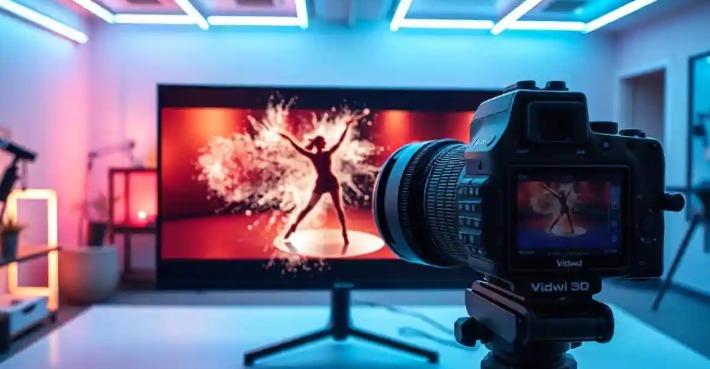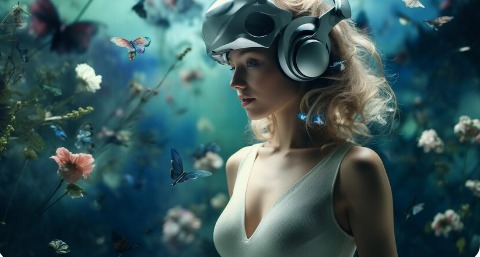Okay, let's just admit it. For a solid decade, a "good app" just meant it didn't crash your phone. Fast and not buggy. That was the pinnacle. But now? That’s just the price of admission. Nobody gets a gold star for that anymore. So, the real question is, what’s the thing that actually wows people? What's the next big jump? It’s not one thing. It's a combo. A mashup of Artificial Intelligence and that Augmented Reality stuff people have been talking about for years. This is what the big players—the top mobile app development companies—are betting the farm on. They know the whole conversation around AR In Mobile Apps has grown. The era of just sticking a cartoon character on your lawn is over. Thank goodness. The real leap forward is when these two things truly start working together. This is the simplest way to get it. Your phone's camera, the AR part, is like a pair of eyes. It can see things. It can look at a chair, a table, or a plant. But it has zero clue what any of it is. It's just data. Shapes and colors. It's looking, but it's not understanding. Now, drop AI into the mix. AI is the brain connected to those eyes. Suddenly, your phone isn't just seeing a "brown shape with four legs." It's recognizing a "wooden dining chair." It gets context. It understands. That’s the entire game-changer right there. The seeing part gets a brain. When that happens, apps can start doing some incredibly useful things. This isn't some far-off dream. It's already solving some really annoying problems. Take shopping for furniture online. It’s a total gamble. You buy a couch that looks great on the website, and it shows up looking like it belongs in a dollhouse. It’s the worst. Now, apps can use this AI-AR combo to put a full-size, 3D model of that couch right in your living room. And here’s the smart part—the AI sees the lamp in your corner and makes the shadows on the virtual couch fall in the right direction. It just looks like it’s there. That's not a gimmick; that's just a better way to buy things. Or think about something more serious. A mechanic fixing a newer car engine. It's a mess of wires and sensors. Instead of a clunky manual, they could just look at the engine through a tablet. The app highlights the exact part that needs replacing and shows a little animation of how to remove it. Simple. Fast. Fewer mistakes. Think about learning, too. Trying to get your head around something complex, like human anatomy, from a flat picture in a book is tough. Now, you can have an app that puts a 3D, beating heart right on your kitchen table. The AR makes it appear, but the AI is the real teacher here. You can ask it, "Show me where the aorta is," and that part will light up. You can tell it to simulate a heart attack to see what happens. It’s the difference between just memorizing a diagram and actually understanding how a system works. It turns a boring lesson into an interactive lab. Look, making this stuff work is tough. It’s not magic. For one, it kills your phone's battery. Asking your phone to see, think, and display 3D graphics all at once is a huge power drain. It gets the device hot and can chew through a full charge in no time. The hardware is getting better, but we're still a little way off from being able to do this all day. Then there's the sheer difficulty of building it. You need a team where 3D artists, hardcore coders, and AI scientists can all work together. Getting those very different types of people to speak the same language and build one seamless product is incredibly hard and expensive. It’s not a weekend project. And then there's the privacy thing. I mean, we're talking about apps that are actively scanning and understanding your home, your office, your face. We have to be really careful and really clear about where that information goes. If people get creeped out, this whole thing fails before it even starts. But even with those hurdles, this is where things are headed. It's about making our phones less like passive blocks of glass we poke at and more like active tools that can actually understand the world with us. It’s a big shift in thinking, and it’s going to change what we expect from our apps forever.
So, Your Phone's About to Get a Lot Less Dumb
Think of It Like This: Giving Your Camera a Brain
And Yes, People Are Actually Using This Right Now
It's Not a Perfect Road, Though




Want to add a comment?